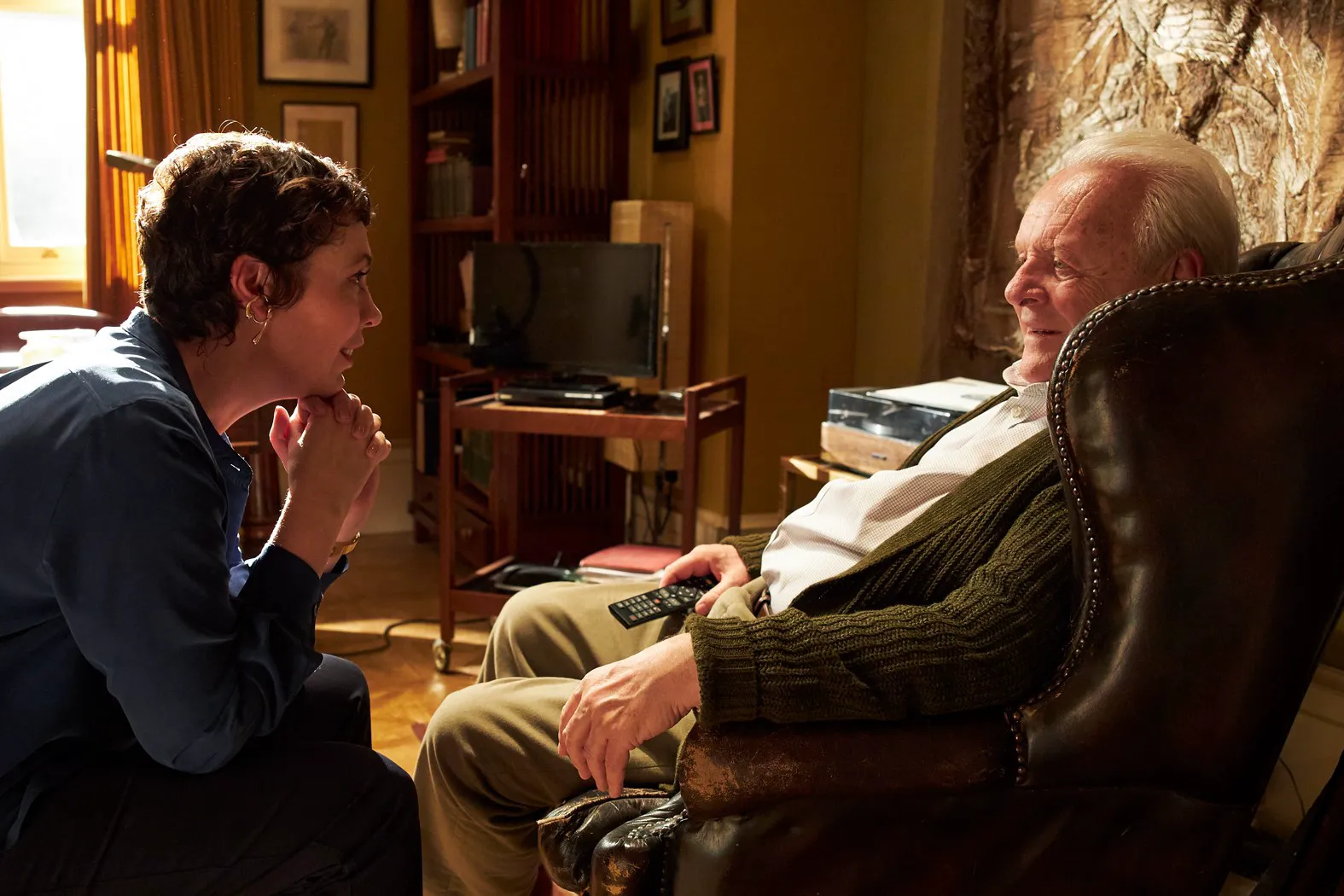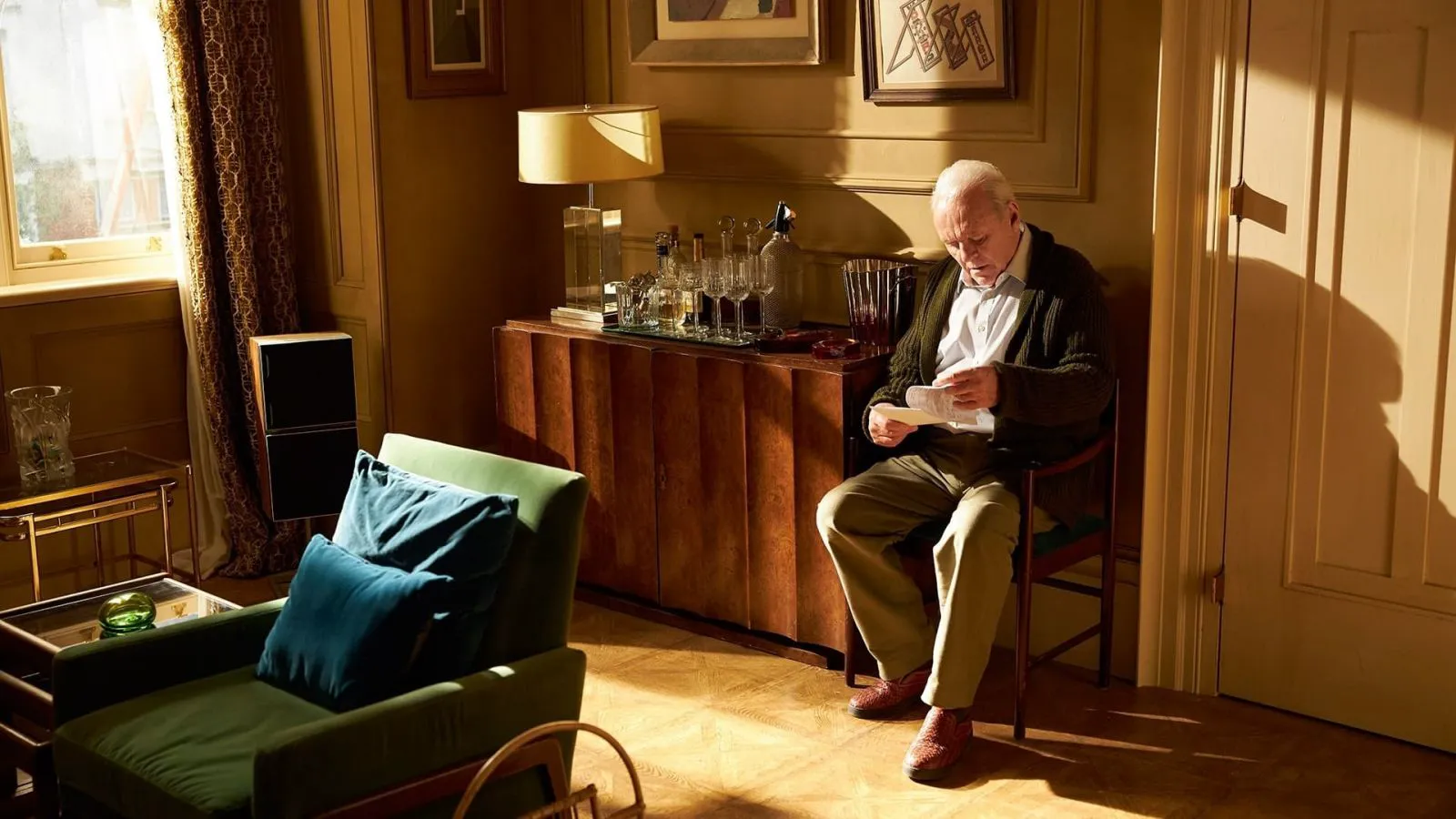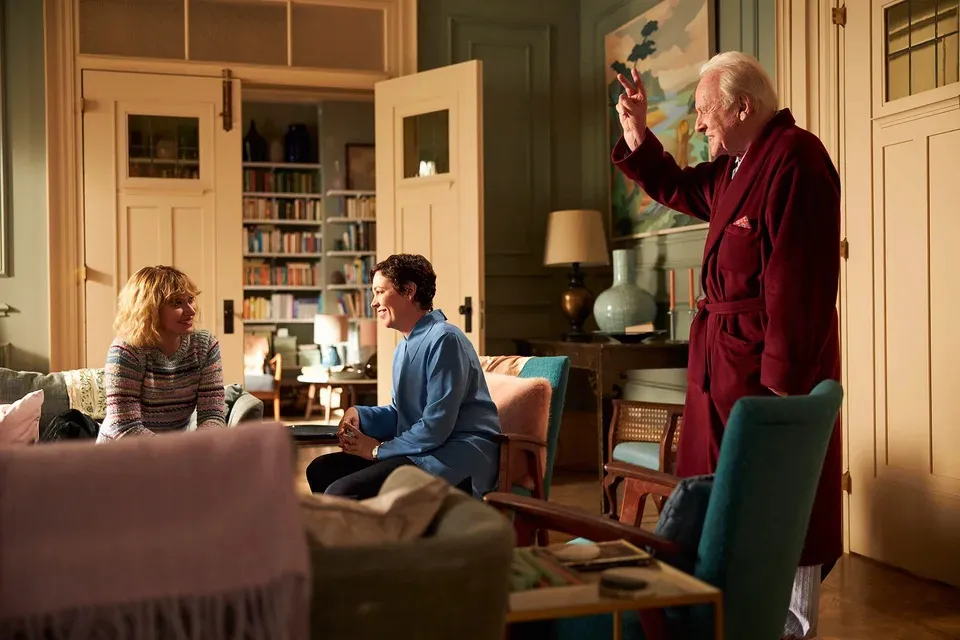The Father: A Hauntingly Honest Portrayal of Dementia
Anthony (Anthony Hopkins), a man in his early 80s, lives alone in his spacious London apartment. He stubbornly refuses the assistance of caregivers hired by his daughter, Anne (Olivia Colman). However, help is undeniably needed. Anthony becomes increasingly disoriented within his own home and, more alarmingly, begins to lose his grip on reality. He forgets names, struggles to recall significant events, and is unsure whether he lives alone or with his daughter, constantly surprised by new faces in his home.

Olivia Colman as Anne in “The Father”
At first glance, “The Father” might seem like a typical Oscar-bait film – a drama meticulously crafted to win awards by tackling a weighty subject. Dementia and Alzheimer’s disease have long been considered surefire material for Hollywood executives. It takes considerable effort to avoid eliciting sympathy for characters battling these illnesses, especially when portrayed by A-list actors. Julianne Moore, for instance, won her first Oscar for “Still Alice,” a safe and calculated drama that expertly uses sad music and displays of helplessness to move audiences to tears. It seemed “The Father” would fall into the same category, but Florian Zeller delivers one of the most immersive, frightening, honest, and creatively insightful films about dementia.

Anthony Hopkins as Anthony in “The Father”
Beyond the Surface: A New Perspective on Dementia
Most films on this topic focus on documenting the agonizingly slow process of decline. The audience witnesses the drama of a person ceasing to be themselves, becoming a mere shell of their former self in the eyes of loved ones. The afflicted individual may get lost, lose control of bodily functions, struggle with basic tasks, and become a burden on their family. While undoubtedly difficult to watch, filmmakers’ obsession with the physically helpless character often feels manipulative and heavy-handed. “The Father” stands out as a unique film that manages to approach the familiar subject from a different angle. Instead of forcing the audience to identify with exhausted relatives or simply sympathize with the decline, the creators effectively convey the bewilderment, anger, and fear of a dementia patient who genuinely doesn’t understand what’s happening to them.

Anthony Hopkins as Anthony in “The Father”
The Power of Immersive Storytelling
“The Father” is an adaptation of a play of the same name by European playwright Florian Zeller, who personally adapted it for the screen. Often, adaptations of theatrical productions feel uncinematic and lack a sense of freedom in the frame. However, in the case of “The Father,” the intimacy, on the contrary, helps to convey claustrophobia, as if the viewer and Hopkins’ character are locked in an ordinary but constantly changing apartment. Zeller uses fairly basic techniques to achieve immersion, disorientation, and convey Anthony’s confusion: no flashy cinematic tricks that tear the fabric of the film, but rather echoes of an unreliable narrator, casting different actors in the same role, dialogues that shift in meaning, or a changing interior environment.

Olivia Colman as Anne in “The Father”
This intelligent simplicity works. The most ordinary and accessible maneuvers transform the story into a domestic thriller, a Kafkaesque horror about a man who cannot understand who has gone mad: him or the world around him. At the same time, “The Father” does not overuse formalist techniques and uses a narrative concept to tell the story of a man who rediscovers tragic moments of the past and learns to live in a new way. The only concern during viewing was the ending of the film - when you understand the rules of the game, you begin to wonder what can put an end to the odyssey of the hero wandering through the labyrinths of memory. However, even here, the creators did not reinvent the wheel and presented a simple but only true ending, knocking out the viewer with childish naivety.
A Masterful Performance by Anthony Hopkins
However, the aforementioned techniques and ideas would hardly have worked with the same force if it were not for Anthony Hopkins in the film. He, of course, even in “Transformers” and “Thor” played as if these were not Hollywood blockbusters, but the most important productions of the London theater, but in “The Father” the actor, even by his high standards, played one of the main and most difficult roles in a fruitful career. This is not just senile helplessness, but a desire to prove that he is still worth something; this is anger, resentment and frighteningly plausible fear in the eyes. A masterfully played role, worthy of any recognition and awards.